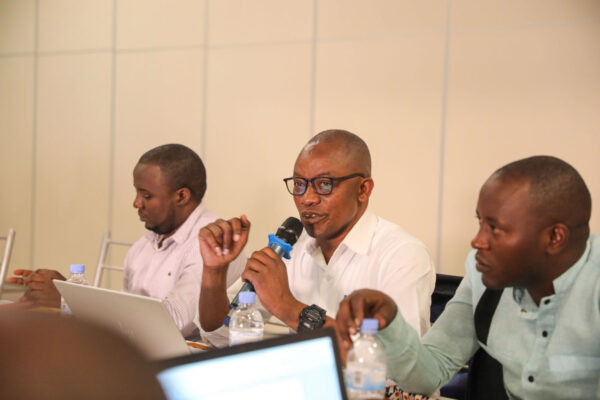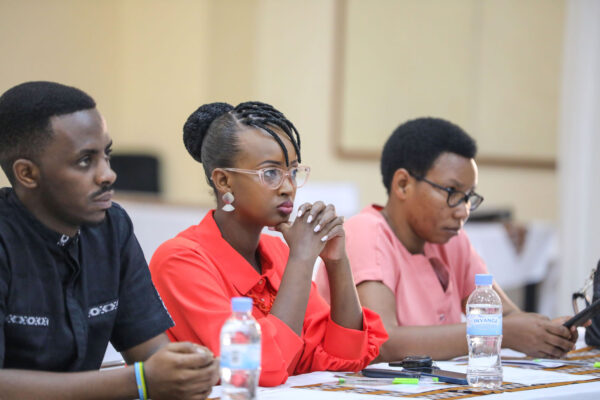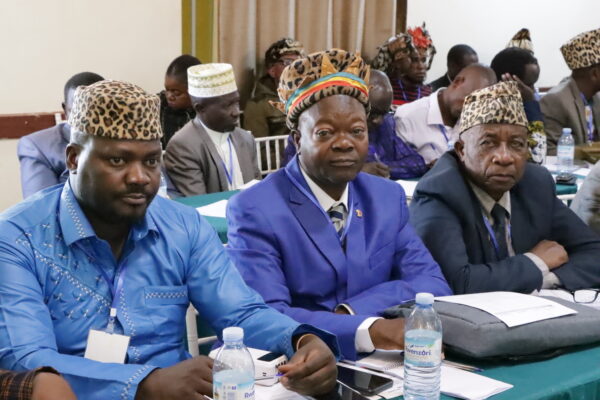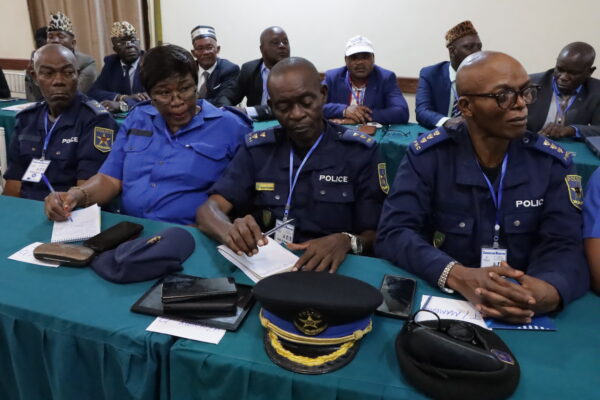Tracer la voie de la réconciliation au Burundi à travers le dialogue intergénérationnel
Interpeace tire parti du dialogue intergénérationnel pour promouvoir la guérison, la compréhension et le développement communautaire au Burundi. Le programme « Dukire Twubake » (Guérir, Construire) a été prévu pour répondre à l’impact des traumatismes passés, du genre et de l’âge sur les individus et les communautés, avec un accent particulier sur la consolidation de la paix, le développement et la prise de décision. Il montre les efforts visant à encourager une communication ouverte et à favoriser le respect mutuel au sein des communautés.
Cette approche établit un environnement dans lequel les participants de tous âges peuvent partager ouvertement leurs expériences, favorisant ainsi l'empathie, la confiance et l'appréciation des diverses perspectives. En lançant des espaces de narration honnête et d'écoute attentive, le programme permet aux Burundais de gérer leur traumatisme, d'explorer de nouvelles voies de progrès et d'acquérir une connaissance approfondie de leur propre vie ainsi que de celle des autres.
De 2023 à 2024, une série de dialogues intergénérationnels ont eu lieu à travers le Burundi, facilités par le Centre d'alerte et de prévention des conflits (CENAP) et Interpeace dans le cadre du programme Dukire Twubake, financé par le gouvernement norvégien. Ceux-ci ont réuni des individus de différentes générations, offrant aux adultes ayant vécu les conflits du pays l’occasion de partager des histoires sur la manière de « faire ce qu’il faut » face à l’adversité.
Les participants ont subi une phase préparatoire avec des séances de sociothérapie. Ce processus leur a permis de faire face aux émotions négatives, de trouver la guérison et de remettre en question les stéréotypes néfastes sur les autres groupes ethniques, ouvrant ainsi la voie à des dialogues intergénérationnels ouverts et constructifs.
Le premier en 2023, organisé dans la commune de Kabezi, a vu les participants partager des dispositifs d'humanité en période de violence dans le pays. Leurs témoignages, impliquant souvent des actes visant à sauver des vies, quelle que soit leur origine ethnique, ont été accueillis par de chaleureux applaudissements de la part des jeunes présents. "Les jeunes participants apprécient le comportement adopté par ces 'héros' lors des moments de conflit violent, celui de ne pas céder à la violence, mais de voler au secours des autres", a observé un intervenant.
Jean de Dieu, membre du groupe de jeunes Dukire Twubake, a saisi l'impact de ces dialogues en déclarant : « Nous venons de comprendre que pendant ces périodes sombres, les Tutsis ont sauvé les Hutus et vice versa. Cela contribue à construire et à renforcer la confiance dans la jeune génération".
Un deuxième dialogue en 2023, organisé dans la commune de Nyanza-lac, a encore amplifié ces messages, les participants partageant des récits émouvants de pardon et de réconciliation au-delà des clivages ethniques. Une femme, aujourd’hui dirigeante locale, a raconté sa pénible expérience d’avoir été injustement accusée, emprisonnée et torturée. Cependant, elle a ensuite embrassé son ancien accusateur dans un puissant acte de pardon, provoquant les acclamations de ses voisins.
Alors que les dialogues se poursuivaient jusqu'en 2024, dans la commune de Ruhororo, l'attention s'est portée sur les « héros » ou « piliers de la paix » dont les histoires ont servi de leçons à la jeunesse burundaise. Emmanuel Barusasiyeko, un Hutu, a raconté comment il avait hébergé trois enfants tutsis lors des massacres interethniques de 1993, risquant sa propre vie pour les guider vers un lieu sûr. Ses actions ont été récompensées des années plus tard lorsque l'un des enfants, vivant désormais au Canada, a cherché à faciliter la migration du fils de celui-ci en signe de gratitude. Avant de conclure son récit, M. Barusasiyeko s'est tourné vers les jeunes pour leur dire 'Ukora iciza ukagisanga imbere' (Si vous faites le bien, vous en récolterez les fruits dans le futur)".
Ces dialogues intergénérationnels ont non seulement favorisé la réconciliation, mais ont également fourni un débouché thérapeutique aux participants. Christian, bénéficiaire de Dukire Twubake, explique : "Ils nous permettent de nous décharger car c'est en parlant de ce passé difficile et parfois en le banalisant qu'on peut enfin vivre facilement notre présent".
« Les dialogues intergénérationnels sont la dernière étape pleine d’espoir de nos séances de thérapie. Nous commençons par aborder les aspects négatifs du passé dans les espaces de guérison. Ensuite, nous encourageons les membres à partager des histoires positives dans ces dialogues, favorisant la compréhension et l'espoir », a déclaré le responsable du programme au CENAP, Serge Ntakirutimana.
« Ces dialogues, axés sur les expériences positives, constituent un outil puissant pour lutter contre la haine et les stéréotypes, en particulier dans les sociétés touchées par des conflits. Les histoires des personnes âgées et des jeunes nous rappellent qu’il n’y a pas de « bonne » ou de « mauvaise » ethnicité dans des endroits à l’histoire troublée comme le Burundi. Chaque ethnie compte des individus qui ont fait preuve d’une humanité remarquable et d’autres qui ont été plongés dans la violence. Ces histoires partagées témoignent de notre humanité commune et sont une lueur d’espoir pour un avenir plus compréhensif et plus compatissant », a-t-il ajouté.
Le programme Dukire Twubake reconnaît le pouvoir transformateur de la narration et de l’écoute pour promouvoir la guérison et la compréhension. Il encourage la communication ouverte, l'introspection et l'exploration de solutions alternatives, favorisant un sentiment de communauté et de collaboration. En utilisant des méthodes de rétablissement psychosocial et des outils de renforcement des capacités et de la confiance, le programme vise à autonomiser les femmes, les jeunes et les communautés touchées par un traumatisme. Il les aide à défendre leurs besoins, à mobiliser les autres autour de ces besoins et à mener des initiatives qui renforcent la cohésion sociale et politique et améliorent les moyens de subsistance. Un témoignage de cette approche est le lancement d'une association d'épargne et de crédit dans la commune de Kabezi par un groupe de douze femmes en août 2023. Cette initiative répond non seulement à leur besoin de crédit abordable, mais offre également des opportunités de soutien mutuel et de guérison. Constituée de femmes de différentes ethnies et religions, l’association renforce la cohésion et la réconciliation. Elle a été lancée après que les femmes ont bénéficié du soutien psychosocial et du renforcement des capacités en matière d'entrepreneuriat offerts par le programme Dukire Twubake, aboutissant ainsi à un récit continu d'autonomisation et de guérison.
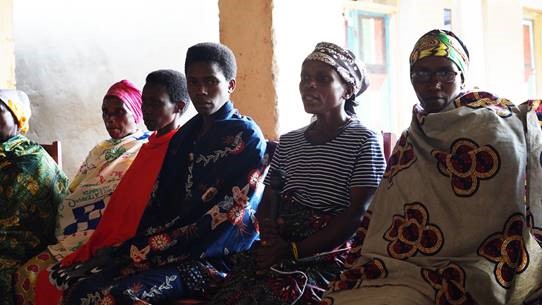
Un participant de la commune de Ruhororo s'est étonné en déclarant : « C'est très impressionnant ! Je ne savais pas que la commune de Ruhororo comptait autant de personnes qui ont risqué leur vie pour sauver leurs voisins en 1993. C'est un très bon exemple pour nous qui n'avons pas vécu ces événements. Personnellement, je suis déterminé à faire campagne pour le bien, même en période de conflit ».
Alors que le Burundi regarde vers l’avenir, les graines de réconciliation semées à travers ces dialogues intergénérationnels portent la promesse d’une nation plus unie et plus résiliente. En honorant les histoires de ceux qui ont choisi la compassion plutôt que la violence, le programme Dukire Twubake a inspiré une nouvelle génération à adopter les valeurs d'humanité, de pardon et de compréhension mutuelle. Celles-ci façonneront un avenir plus pacifique et plus prospère pour le Burundi.


